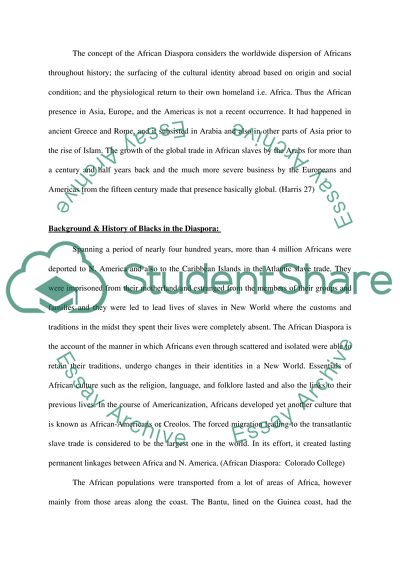Cite this document
(History Of Blacks In The Diaspora, Including America Essay, n.d.)
History Of Blacks In The Diaspora, Including America Essay. https://studentshare.org/social-science/1525882-history-of-blacks-in-the-diaspora
History Of Blacks In The Diaspora, Including America Essay. https://studentshare.org/social-science/1525882-history-of-blacks-in-the-diaspora
(History Of Blacks In The Diaspora, Including America Essay)
History Of Blacks In The Diaspora, Including America Essay. https://studentshare.org/social-science/1525882-history-of-blacks-in-the-diaspora.
History Of Blacks In The Diaspora, Including America Essay. https://studentshare.org/social-science/1525882-history-of-blacks-in-the-diaspora.
“History Of Blacks In The Diaspora, Including America Essay”. https://studentshare.org/social-science/1525882-history-of-blacks-in-the-diaspora.


